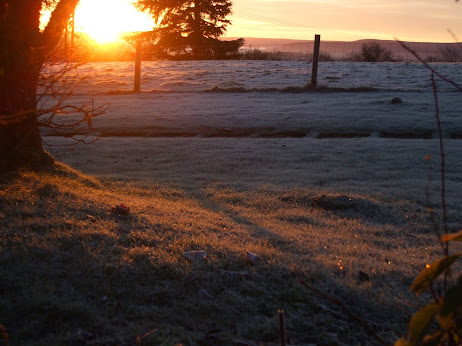The other night I sent what turned out to be a very popular tweet. I'd been half-watching Robert Peston's political magazine show, whilst doing some late-night ironing. Absorbed in tackling some stubborn creases, I was vaguely aware that a government minister I didn't recognise (Robert Buckland) was being interviewed about the likely severity and duration of anti-Covid19 restrictions. Christmas was mentioned. Ohhh... sigh... Christmas had already been mentioned several times over the past month or so, usually in headlines predicting that "Christmas will be cancelled" - as though Christmas were a concert or a train journey. Yes, parties will be cancelled; ditto huge family gatherings... but Christmas...?
The minister must have been asked about this: I didn't take in the question, only his reply, that, most probably, Christmas in its fullest sense won't be achievable for any of us. At which point I set aside the iron, and tweeted my somewhat different opinion... the good news - Christmas, the birth of Jesus, will definitely happen in its fullest sense, as it happens every year, in wartime, peace or pandemic.
There were several responses, agreeing that we don't need parties, expensive gifts or perfect table settings for Christmas in its fullest, deepest sense. Just hearts full of love, said one, and especially if we focus on the most vulnerable, commented another; while someone else added, simply, This is the most apposite time for Christmas, God dwelling in humanity, to come in its fullest sense.
Any time is apposite, though maybe now feels especially apt. And maybe now we especially need to remember that although Jesus was physically born two thousand years ago, he continues to be born every year - and not only on the 25th December. The Incarnation, the Word becoming flesh and dwelling among us, is no mere historical fact. Jesus is present, in the very heart of our world: he is, and can be, born in each of our hearts any day, every day - if we allow this to happen.In 1970 the Society's General Chapter called and committed its members more deeply to the Heart of Jesus present in our wounded and wonderful world, and to renew our apostolic mission. Fifty years on, in a world which remains wounded and wonderful, and increasingly fragile and unstable, this call from the Chapter feels especially apposite...
"The Word was made flesh, He lived among us." (John 1.14)
In these times when people constantly question the meaning of life and wonder what the future can hold for such a divided world, surely it is an urgent task for us to show that the Incarnation is now, to show Christ's love ourselves: the love of Jesus who lived as a brother and who freely gave his life for his friends.
Yes, the Incarnation is NOW; Christ, Love, dwells among us, and within us, in the fullest sense. How can our lives proclaim this?

Comments
Post a Comment